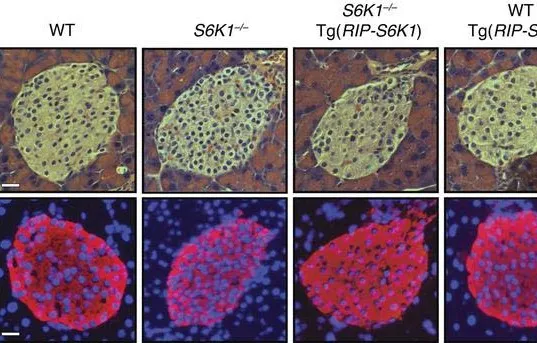IDIBELL Metabolism and Cancer Laboratory researchers led by Sara Kozma have demonstrated in animal models that S6K1 protein inhibition can be a potential treatment for type 2 diabetes.
In a study published this week in the Journal Clinic of Research magazine, researchers have shown that animals that do not have S6K1 protein, a kinase protein, are more insulin sensitive, therefore need less and do not develop type 2 diabetes.
In previous studies the Kozma group had observed that the S6K1 protein deficient mice were smaller and presented circulating insulin levels below normal."We show that the beta cells of these animals were smaller and produced less insulin," explains the researcher."They also demonstrated that in the absence of S6K1 protein, the peripheral tissues of the animal became more insulin sensitive and did not develop the disease, even when they were subject to a fat -rich diet."
In this study, the Kozma group has used the embryonic rescue technique to understand why the beta cells of these mice were smaller.They implemented embryonic stem cells deficient in S6K1 protein in placentas of normal mice and saw that although the embryo reached a normal size, their beta cells remained small.
Therefore, the size of beta cells is independent of mouse development in the uterus and is the absence of S6K1 protein peripheral tissues that allows the increase in the sensitivity to the insulin of the animal.So, inhibitors of this protein can serve as potential sensitizers to insulin to protect against their insensitivity and treat type 2 diabetes.
It is therefore an important advance that could give future solution to a possible solution of type 2 diabetes. We will continue to inform you of all this.


